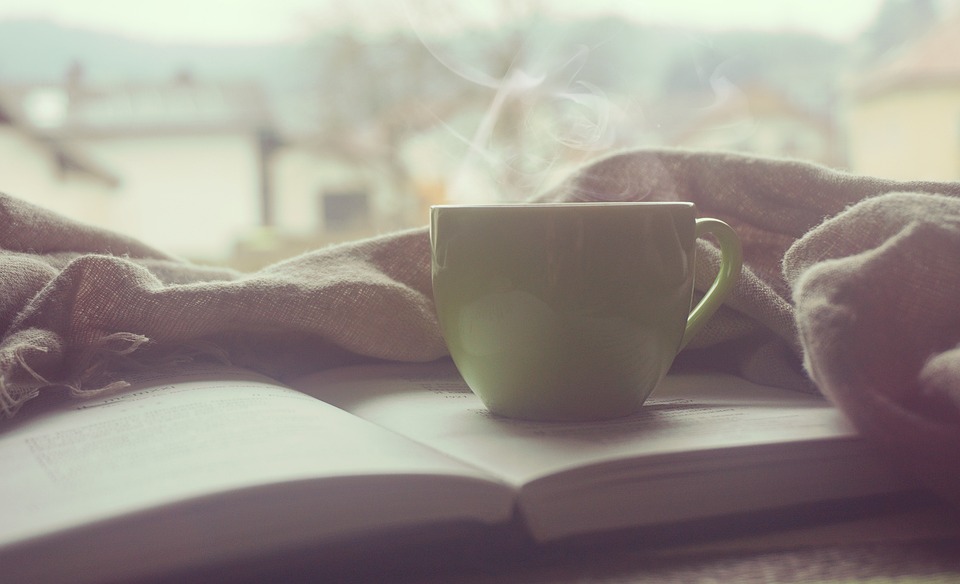We humans need balance to thrive, but the intensity of the holidays often throws us off balance. When we’re stressed or excited, we tend to overdo things like eating, drinking, and skipping our regular routines. This can lead to weight gain, less exercise, and less sleep.
If you try to keep running on adrenaline for too long, you will eventually wear yourself out and won’t be able to keep going. If you tend to get sick often, it is most likely due to your immune system being overworked, rather than cold weather.
We need to keep our stress levels under control and try to stay calm. Here are some stress-relieving methods to stay on top of your game; use these to regroup, reenergise, and rejuvenate during and after the festive season:
Some quick-fix home remedies to relieve stress
Sleep
Sleep is essential for our health and wellbeing, and should never be considered a luxury. We need to make sure we get at least eight hours of sleep per night to be healthy. Sleeping more than you normally would in order to catch up on sleep is not really effective, so be sure to find the time to get the number of hours of sleep you need and keep stress at bay.
A nice cup of tea?
If you’re feeling stressed, try drinking herbal green tea, or matcha. Green tea is rich in L-Theanine, which can help calm and relieve stress.
Meditate
Meditation is a practice that people have been doing for a long time in order to relax and become more clear-headed. Almost anywhere can be turned into a space to help soothe anxiety by finding a quiet spot to sit down and focus inwards for a few minutes. One of the most effective ways to relieve stress is to find clarity and live in the present moment. This method is being used by more and more people all over the world to cope with the demanding nature of modern society.
Stretch it out
A quick stretch can help relieve muscle tension and relax us during a stressful moment. There are still ways to relieve stress even if you have to stay seated. You can roll your shoulders and open your chest, rotate your head one way then the other, and rotate each foot and hand. If you can stretch or do some yoga, this will help improve blood flow and calm your mind.
Breathe
The most simple way to relax is to take slow breaths in and out. This can help lower blood pressure and heart rate. Pranayama breathing is a yogic method of breathing through one nostril at a time to relieve anxiety. The technique is similar to acupuncture and is said to balance the mind and body. It likely works in part because it distracts the person from focusing on one side then the other.
Get some Rays
The thing that keeps our planet alive can also help improve our health. Vitamin D is a important nutrient that helps keep our systems functioning properly. It can also help to prevent and reduce depression. To get enough Vitamin D, all you need to do is expose yourself to some direct sunlight for a few minutes per day without wearing sunscreen or any other type of covering. Close your eyes and soak it up.
Self Massage
When you can’t find a professional masseuse, try giving yourself a hand massage. This will help you relax and calm your heartbeat. Massages can help reduce stress and tension for people who spend a lot of their time typing on a keyboard. Hands in general can carry a lot of tension. Apply some luxurious lotion and start kneading the muscle at the base of the thumb to relieve stress in the shoulders, neck, and scalp.
Homemade foot massage
The golf ball will help massage the pressure points on the bottoms of your feet. To massage the pressure points on the bottom of your feet, just sit in your favorite chair, grab a golf ball, and roll your feet over it. It works! Super simple de-stressor.
Comfort Zones
You should keep your workspace and living space tidy and organized. If you spend most of your time in tranquil, clean and comfortable spaces, you will feel more comfortable and less stressed on a daily basis.
Take a Hike
Sometimes the best thing to do is to take a walk or a run to clear your head. A change of environment can help ease the pressure, and some fresh air and physical movement can release endorphins. At the very least, you’ll feel refreshed after taking a break, ‘changing the chip’ in order to better cope with stress, and things may seem a little easier to handle. After only 10 minutes of being in fresh air, your brain chemistry will change.
Make a Note of it
Writing down our emotions can make them feel less threatening. If you are feeling burdened by something, putting your thoughts down on paper or in an email to a friend can help to clarify the issues and make them feel more manageable. Just by writing down your thoughts, you may feel less stressed.
Aromatherapy
This practice is very effective, but it can take time to learn everything. However, there are some simple things you can do at home to make yourself feel more calm and relaxed. To use essential oils, you just need to drip a small amount onto your palm and then inhale the fumes. This only takes a minute and can have a calming or invigorating effect, depending on the oil you choose. The calming scents may help to reduce stress and anxiety by stimulating the smell receptors in the nose that are connected to the part of the brain that regulates emotions. Aromas from citrus fruits can also help us relax, as can coffee. Coffee also helps to reduce stress hormones. You don’t even need to drink freshly roasted coffee beans, just inhale their smell.
You’ve got to be joking
Laughter is one of the best ways to reduce stress. It is happy and basic. An outburst of laughter has various benefits such as increasing blood flow, boosting immunity, and releasing endorphins which make you feel good. It really is the best medicine.
Talk to a Friend
Chatting with an old friend and sharing your feelings is just as good as any other stress-relieving treatment. You don’t have to be laughing to relieve stress.
Tips To Keep Calm and Destress
Tip 1: Recognize when you’re stressed
You would think that you would know when you are stressed, but a lot of us are so frazzled all the time that we don’t remember what it feels like to be calm and alert. You can tell when you are stressed by listening to your body. You usually feel tired when you’ve been working hard or playing hard. Your eyes feel heavy because you’re exhausted and you might put your head down on your hand to relieve some of the pressure. When you’re happy, you laugh easily. Your body gives you signals when you’re stressed. Make it a point to notice when your body is telling you something.
Observe your muscles and insides. Are your muscles tense or sore? Is your stomach tight, cramped, or aching? Are your hands or jaw clenched?
Observe your breath. Is your breathing shallow? Place one hand on your lower abdomen, slightly below the navel and the other hand on your chest. Watch your hands rise and fall with each breath. Do you notice when you breathe fully or when you “forget” to breathe?
Tip 2: Identify your stress response
We all respond to stress in the same way internally: blood pressure rises, heart rate increases, and muscles tighten. Your body works hard and drains your immune system. Externally, however, people respond to stress in different ways.
The best way to quickly relieve stress often relates to your specific stress response:
If you tend to becomeise angry, agitated, overly emotional, or keyed up under stress, you will responded best to stress relief activities that quieten you down.
If you find yourself becoming depressed, withdrawn, or spaced out when under stress, you will respond best to stress relief activities that are stimulating and energizing.
The immobilization or “frozen” stress response
Do you freeze when under stress? Basically, the immobilization stress response is when someone has a past history of trauma and they react to it by freezing up. You may find yourself unable to take action when you are faced with a stressful situation. Your challenge is to take action to improve your situation by resetting your nervous system and activating your body’s natural “fight-or-flight” stress response. Staying active by doing physical activities that use both your arms and legs, like walking, swimming, running, dancing, climbing, or tai chi, can be very helpful. As you move, focus on the sensations you feel in your limbs avoiding thinking too much. This mindfulness element can help your nervous system by helping you become more aware of your surroundings and less caught up in your thoughts.
Tip 3: Bring your senses to the rescue
First, identify the sensory experiences that work best for you in order to use your senses to quickly relieve stress. This can require some experimentation. As you use more senses, you will notice how quickly your stress levels decrease. And be as precise as possible. What kind of sound or movement affects you the most? If you want to relax, try listening to music that you enjoy. Find a song that makes you feel happy or peaceful, and listen to it whenever you need to relax.
There are many ways to relieve stress, and one of them is to explore different sensory experiences. This can be done anywhere, and it can help you to feel better no matter where you are.
Tip 4: Find sensory inspiration
Having trouble identifying sensory techniques that work for you? You can find inspiration for your writing everywhere around you, from the things you see as you go about your day, to memories from your past.
Memories. Remember what you used to do as a child to calm down. If you own a blanket or stuffed toy, you may improve your wellbeing through tactile stimulation. A textured scarf or a piece of soft suede can help you feel calmer before an appointment.
Watch others. You can learn a lot about how to deal with stress by observing how others around you cope with it. Baseball players often chew gum before going up to bat. Singers often chat up the crowd before performing. How do people you know stay focused under pressure?
Parents. What did your parents do to relieve stress? After a long walk, did your mother feel more relaxed? Did your father work in the garden after a hard day?
The power of imagination. When you are feeling stressed, try to imagine vividly what it would feel like to experience different sensations. See your baby’s face in your mind will have the same effect as looking at a photo of her. By recalling a strong sensation, you’ll always have a quick stress relief tool.
Take a break from technology
If you take a break from technology for a while, you’ll be able to figure out which of your senses work best.
Tip 5: Make quick stress relief a habit
It can be difficult to remember to use your senses during a small or large crisis. When you first experience pressure, it may feel easier to just give in and tense up. with time, using your senses will become something you do without thinking about it.
Here’s how to make it habit:
Start small. Instead of using your stress relief tools for a major source of stress, start with a low-level source of stress that is more predictable, like cooking dinner at the end of a long day or sitting down to pay bills.
Identify and target. What is one low-level stressor that you know will occur several times a week? Promise to always take action against that stressor using efficient stress relief methods. Target a second stressor after a few weeks, and so on.
Test-drive sensory input. If you want to practice stress relief while commuting to work, try using a scented handkerchief one day, listening to music another day, and doing a movement the next day. Keep experimenting until you find a clear winner.
Have fun with the process. If something doesn’t work, don’t force it. Keep moving until you find something that works best for you. It should be pleasurable and noticeably calming.
Talk about it. If you tell your friends or family members about the stress-relief strategies you are trying, it will help you integrate them into your life. This is an added bonus as it is bound to start an interesting conversation as everyone relates to the topic of stress.
Tip 6: Practice wherever you are
Sensory-based strategies are great because they help you realize that you’re in control. You can find relief from stress no matter where you are or what you’re doing.



